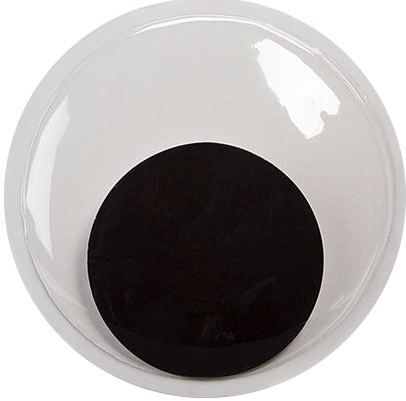This is Harvard Health Publishing, they say I need about 0.8 grams of protein everyday, now, that means I would have to consume about 70 grams of protein everyday (minimum) to stay healthy, now, I live in India and don’t consume that much, but I consider myself pretty healthy.
So, what’s the amount one should realistically be aiming towards? If I were to take 70 grams of protein everyday, what measurable changes can I expect in my life🤔?
A lot less than Americans think. Going from memory it’s about 6-8% of calories.
People dont always calculate their total protein intake correctly, because things like wheat (12% protein) and rice and potatoes (3%) have protein although thought of as carbs. Studies say 50g of protein per day is ok, but some people say more is better, particularly if trying to build muscle mass etc
Do you eat enough in general (eg 3 meals a day, you don’t feel hungry most of the time)? It’s not hard to meet the basic nutritional goals by just eating what you want when you want. Protein is in everything so it’d be quite hard to be significantly deficient if you’re not starving.
I eat a protein low diet, 400 grams of rice and maybe 200 grams of what and some dal (which is protein rich but I eat very less quantity of it). One egg, and this is the best case scenario and I don’t think that will get me more than half of what they say I need to be healthy.
Is “grams per pound” really the way you say it?
Like, if you know the concept of gram, why do you need a pound?
In the US, we weigh ourselves in pounds. But nutritional information about food is in grams.
Imo, the fact that the numerator and denominator units are incompatible isn’t a big deal since the message “eat .08% percent of your body weight in protein each day” is not the intuitive way to think about how much to eat. It’s much easier to use a unit in the numerator that is common measuring nutrition and a unit in the denominator that is common for measuring body weight.
My question is essentially as to why you use two systems at once
If you know what gram is, you can imagine a kilogram as well: the conversion is easy, measurements are consistent with each other and the entire world, and it makes it very clear both units are tied together and represent mass.
It’s not actually that intuitive when you don’t use kilograms. An American might know what a gram is, but mentally multiplying the conception of one gram by 1000, it’s hard to imagine. You really need experience with kilograms to understand kilograms.
As an analogy, say you don’t know Fahrenheit. I can tell you that 32 °F is the freezing point of water, and 100 °F is a really hot day. Is 300 °F the right temperature to cook chicken at? In theory, you can mentally extrapolate, but in reality it’s hard to say without direct experience with Fahrenheit in cooking (it’s not right, it’s too cold).
I see your point, thanks!
but seriously, go metric already, nearly an entire world managed to(light-hearted)I agree! My country is so fucked because we’re caught between metric and American units. Worse than just Imperial.
Same reason we know what a liter is but still use pints and gallons. Because we recognize the value of the easy precision of metric when it’s needed but prefer imperial for our day to day lives.
The rule of thumb I remember using is the portion size of a pack of cards, now also remember that you can get proteins from other sources as well Some are complete proteins & some you need other ingredients to complete.
Best AskLemmy question I’ve seen in years
Hehe… Thank you!
if you eat the recommended amount of protein (and a little extra as a buffer) then you would not notice any particularly striking change, but statistically your quality of life will improve for myriad subtle reasons. Hormone production will be more stable, you will be less likely to get diseases associated with protein deficiency, you will build muscle slightly more easily, your brain will technically function slightly better in subtle metabolic ways, as with all your other organs. etc. You will likely, not notice any of it. But across your life it will statistically make a difference in your health outcomes. this is true of all phytonutrients, not just protein.
The recommended amount contains a buffer. No need to add your own buffer as well
based on the screenshot, it does not seem to include a buffer, and is unlikely to imo because that requires taking a stance on the size of that buffer.
People get a significant amount of their protein intake from sources that aren’t usually considered “proteins”. Lentils (and mung beans if you don’t think of them as lentils), wheat, rice etc all have significant amounts of protein (especially lentils). Yogurt and cheese has lots of it too. Not sure what part of India you’re in or what sort of food you’re mostly eating but my guess is you’re getting more protein than you realize.
If u wanna build muscle eat at least 1g per pound of body weight (or 2.2 per kg).
Make sure ur getting enough carbs and fat too though, they’re equally important.
Make sure ur getting enough carbs
What do the carbs do for body builders? Force anabolism?
The body eats up muscle as the first response to being deprived of substance.
I havent seen the research showing that the body eats muscle when not consuming carbs.
Not carbs in specific. But muscle along fat is very quick on the cut list of things your body does away with when having deficiencys. Just look at people doing hunger strikes
Carbs are the basic molecules used in your energy metabolism (i.e. almost everything gets converted into glucose through one pathway or another).
If you’d try to meet your calorie requirements with a high protein intake you’d just put unnecessary strain on your kidneys and I don’t think you’d enjoy your food as much (don’t get me started on keto people)(don’t get me started on keto people)
Please! I want to know more
There are specific medical conditions where a ketogenic diet has shown some promise, but for the most part it’s not great for you. Essentially you needv blood sugars, and converting them from protein or fat takes a higher toll on your body than converting them from carbs. It barely counts as converting, a complex carb is really just a chain of sugars
Too much protein can fuck up your sleeping schedule. Especially if it’s lean protein with little fat. Happened to me when I was eating too many chili cheese smoked sausages all the time because I was lazy. They’re delicious though.

I don’t mean to pry but sausage in general, especially seemingly chili cheese sausage, has an incredible amount of fat (that is not to say the fat is bad, subtypes and fatty acid chain length are important to note), wouldn’t this be counter to your point? Unless the chili cheese smoked sausages are some Franken-Sausage (lol) that is super lean.
I am… ALMOST sure they’re making a joke about farting keeping them awake.
😅🤦 I feel like a fool
This is a good question but you’re going to get a wild range of information because of a number of factors.
That number is a good starting point but it’s likely low especially if you’re physically active or using a vegan/vegetarian source.
Also, something one must keep in mind is that the vast majority of research in the field is built on the fundamental assumption carbs should be the largest part of the diet which is likely wrong as the body seems to run better the less sugar you give it.
https://youtube.com/playlist?list=PLE8LmUoWei5Qp5Nz7C4FMNs6hGNx7M3Jg
That’s a great lecture, thanks for sharing
Proteins don’t necessarily just mean meats etc. Most vegetables and grains have protein in them that is contributing towards your daily requirements.
I eat a pretty low protein diet, max to max I might get 20 grams (did that math), still I am not facing any major effects I feel
You might be underestimating the amount of protein you’re getting. Urad dal has 25g of protein per 100g serving. Chickpeas are similar (19/20g per 100g serving). Red lentils are like, 10g per 100g serving. I “need” about 70g of protein; some days I’ll get that other days not so much but the average is probably about right.
I don’t track macros though.
I eat vegetarian and it’s never been an issue, though to be fair in western diets we’re generally over-proteined.
Isn’t that dried chickpeas and dried lentils? Cooked you are looking at roughly a third, unless I am mistaken
Why does 2/3 of the protein vanish when you cook it?
It doesn’t it just gets diluted because of the water you add during cooking. Same amount of protein is there but 100g dry lentils is aprox 300g cooked
Im going to say the Harvard estimate is probably pretty close. It is probably a bit higher than what you would need on a day to day basis for survival, but enough to help your body maintain some muscle over the long term.
Its not enough for someone wanting to be fit or muscular though.
If your recommend protein intake is 70 grams per day (meaning you weigh about 195 pounds / 87 kg) and you’re only getting 20 grams per day, then you are likely already experiencing health issues.
From https://www.verywellhealth.com/protein-deficiency-symptoms-8756264 you could expect to experience:
- Weakness and fatigue, meaning you’ll feel exhausted - mentally, physically, or both
- Skin, Hair, and Nail Problems
- Mood changes, including the development of mood disorders, such as depression
- Compromised immune system
- Slowed wound healing
- Decline in bone strength
- Fatty liver
- Weight loss due to your muscles and organs being broken down - but my understanding is this is mostly relevant if your overall caloric intake is quite low (starvation levels)
- Weight gain due to fluid retention or increased hunger
Not all of those are immediately noticeable.
However, I’m with the other commenter who said that they think it’s likely that you’re under-estimating your daily protein intake. What method did you use for tracking and calculating it?
I have a very monotonous food that I am fed, so, I just calculated how much protein I am getting from it and it turned out to be no more than 20 grams average per day. Boy, I need to add more proteins to my diet, can protein powders be digested by the body well or should I look for natural sources of protein?
Just eat more beans, put milk in tea, some meat if you eat that, you don’t need protein powder. Food will give you more nutrients than a protein isolate. A balanced diet is the way to go.
Powders can be good, but they can also be garbage. It depends on the brand. But with whole foods like legumes or animal meats, you can be sure you’re getting quality protein.
I mean most powders are from natural sources. Pea protein, whey comes from milk. Depends on the person, some people have digestive issues if they start taking a ton of protein and don’t adjust bit by bit. If you’re lactose intolerant, watch out for powders that are Whey based, some contain enough lactose to upset your gut. Some say lactose-free.
Also, thanks for the detailed answer!
I mean, you have your answer right there. It’s not like Harvard is a particularly untrustworthy source for diet recommendations.
Why are you doubting the number? If you feel fine and don’t want to change, don’t. Everybody is different and has different needs, and you might just need less, but anyone reputable is going to give the same rough range.






